After reading Marie Kondo’s The Life-Changing Magic of Tidying Up earlier this year, I couldn’t wait to read and review her brand new book – A Letter from Japan.
Much like her previous books, it’s filled with her characteristic expert advice, and I can vouch for the fact that it’s just as inspiring as the others I’ve read. After all, if these guiding principles are good enough for Marie, they’re certainly ideas I want to emulate in my own space.
You may like
3 Lessons I Learned from Marie Kondo’s ‘Letter from Japan’
All prices were correct at the time of publication.
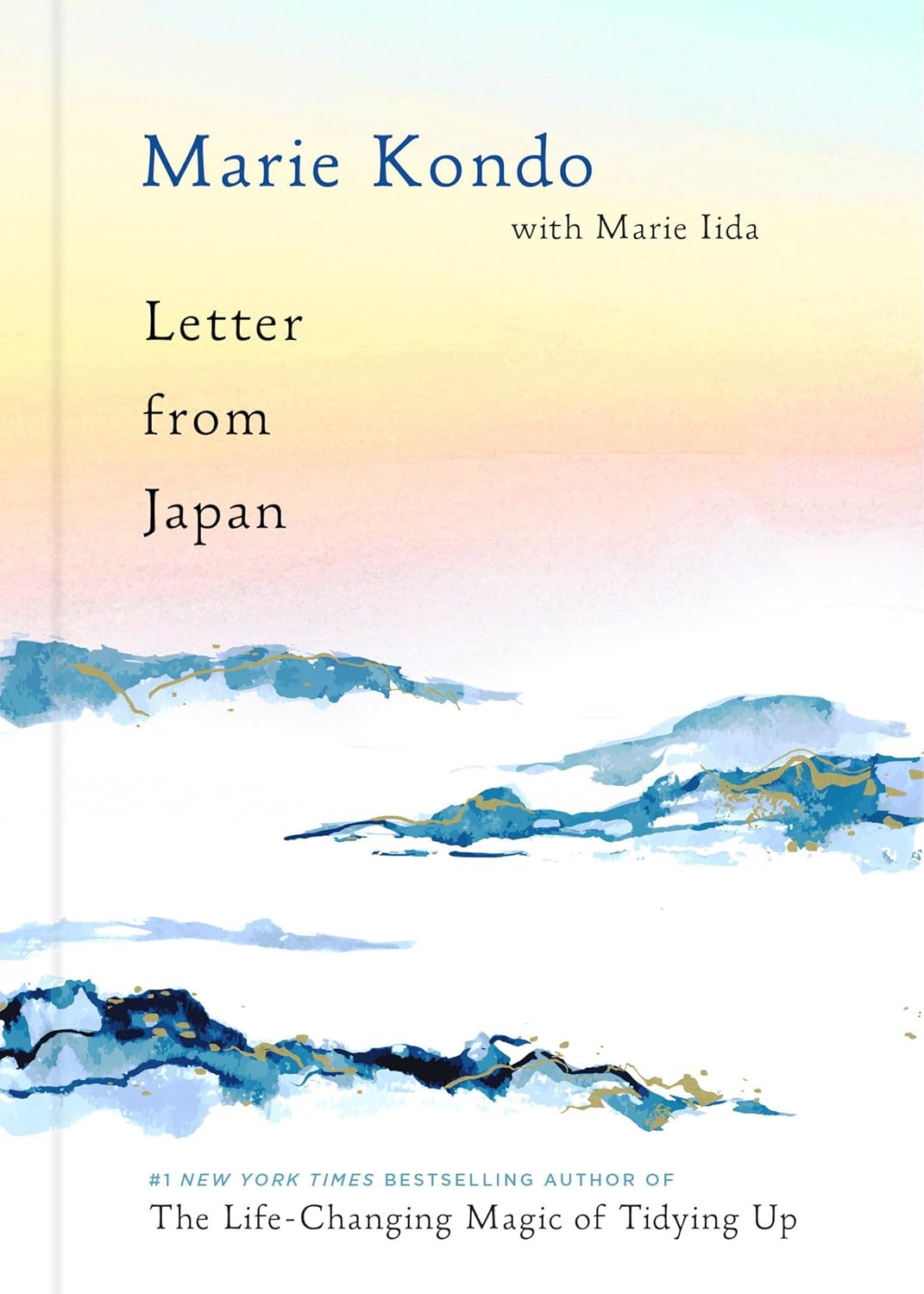
New release
Letter From Japan
The sentiment of this book is beautiful, and so is the cover. It looks right at home on my bookshelf, alongside my other two decluttering Marie Kondo books that I’ve thoroughly enjoyed.
1. Cleaning is a Task that Creates Value for Ourselves and Others

Look after your space and it will look after you, too.
(Image credit: Future / M+M MANAGEMENT (DAVIDE LOVATTI))
It seems so simple, yet all too often is forgotten – a clean house really does make you happier, and the reason why, according to Marie Kondo’s new book, Letter from Japan, is obvious.
In her chapter entitled Soji or ‘cleaning,’ Marie reflects on her childhood and time spent at school, and how that shaped the way she views cleaning and taking care of her home today.
‘From cleaning our classrooms every day to taking off our shoes and changing into slippers at school to avoid tracking dirt inside, we learned to respect and care for the spaces we were lucky enough to call our own,’ she writes, and isn’t that such a simple yet effective idea?
When we spoke to Marie earlier this year about mistakes people make when decluttering, she reflected deeply on how childhood lessons stay with us for life.
Admittedly, sometimes I just don’t want to clean my bathroom, or do laundry, but what I’ve lost sight of is how lucky I am to have an en suite bathroom to clean, or clothes that I love wearing and therefore need to launder.
‘We should all recognize that cleaning is a task that creates value for ourselves and others,’ Marie continues in the new book, even comparing this concept to examples she’s spotted in my beloved Studio Ghibli movies, directed by legendary Hayao Miyazaki, naming Kiki’s Delivery Service – one of the very best – as a prime showcase of this idea.
I love the way Marie combines personal and cultural moments to explain her concepts in this book. It’s one of the reasons I always enjoy her writing. It’s accessible, easy to understand, and you can read any of her books in any order without feeling any loss of vital context.
In Letter from Japan, Marie details the big impact and value of simple tasks such as opening windows to let in fresh air, cleaning the floor, and removing dust.
Reading about these tasks through the eloquent lens of the value Marie places on daily cleaning has inspired a new level of mindfulness in me, and it’s now something I want to carry forward in my own life and home. Treating my spaces with respect, by putting in the time and effort to care for them, and knowing that, in return, they’ll care for me too, is a great lesson to keep with me.
Marie describes cleaning not just as a task we must do to respect our space, but also as ‘an act of care’ that honors our surroundings and the loved ones that live in them, or visit and enjoy them too.
2. Waste is Almost Always Avoidable with Respect and Reuse

Having respect for your belongings prevents wastefulness.
(Image credit: Future / ONE REPRESENTS LTD (JAKE CURTIS))
If you’re familiar with the concept of mottainai, a Japanese organizing technique, you’ll know that it’s all about never wasting anything that could serve a purpose, like reusing candle jars, for example. One example Marie gives in Letter from Japan is shoe boxes, or gift boxes.
This is something I already do in my own home, but what I hadn’t realized is just like cleaning to show value, mottainai is all about showing respect and appreciation for something by repurposing it to give it a new lease of life, an idea that’s deeply rooted in Japanese history.
One of the most famous examples of this is kintsugi, which can be used to make broken belongings beautiful and encourage sustainability at home.
In her new book, currently Amazon’s number one new release, Marie recounts mending her favorite rabbit plate using kintsugi, and therefore making it a ‘true original’.
I like how Marie highlights in the book that those repairs now serve as reminders of not just the plate’s history, but hers. ‘None of this would have happened without the concept of mottainai,’ she writes.
Now, more so than ever before, before throwing anything away, I’ll truly consider whether it could come in handy elsewhere, rather than contributing to mounting waste and landfill. I find it very satisfying when the simple act of reading a book like Letter from Japan can help us make changes for the betterment of ourselves and the planet.
For examples of how to use this concept in more detail, here at Homes & Gardens, we’ve tried mottainai to organize living room shelves, mottainai to declutter kitchen cabinets, and even used the mottainai concept to easily organize chaotic clothes drawers.
Fundamentally, the possibilities are endless, and the key to nailing it is respect, according to Marie.
3. Focus on Your Space, Not What You’re Decluttering

‘Ma is a wisdom, developed and refined over centuries, that lets in light and air through the fabric of society,’ Marie details in her new book, Letter from Japan
(Image credit: Future / Future Publishing Ltd)
If you’re anything like me, when using decluttering methods or tidying your home, you may find yourself getting bogged down in how much you’re getting rid of or, rather, how much you’re not. But, says Marie, this is completely the wrong way to look at the process, and now I see why.
‘People often focus too much on decluttering when tidying,’ she writes in Letter from Japan, detailing that by embracing the philosophy of ma, you can take ‘a moment to pause and breathe, allowing us to see the spaces we inhabit in a new light.’
Sometimes, concepts like ma can feel hard to understand, but with Marie’s straightforward and heartfelt writing, you can absorb the knowledge she is imparting, without getting bogged down by complex language or ideas. Instead, she once again proves how accessible her writing it and that makes this a quick, enjoyable and effortless read.
By the way, if you’re not familiar with it, the Japanese concept of ma focuses on creating negative spaces around your home, which is where I’ve now shifted my focus to when I declutter or tidy. It’s no longer about how much stuff I can offload, but rather how much space doing so creates.
‘Space is limited in Japan, especially in cities like Tokyo,’ writes Marie. ‘Much like a cluttered closet in need of breathing room, ma is a wisdom, developed and refined over centuries, that lets in light and air through the fabric of society.’
What to Shop
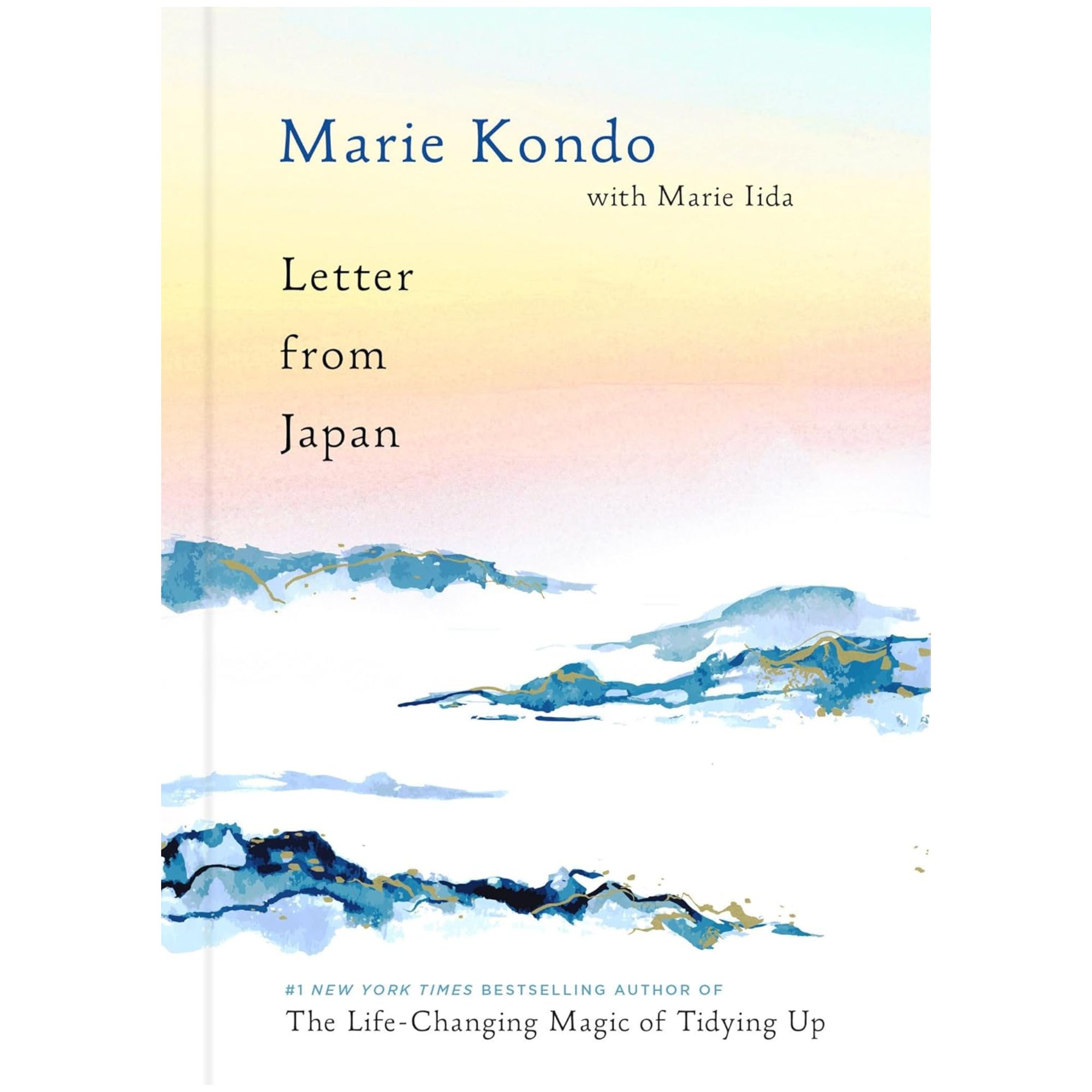
Number one new release
Learn the Japanese way of tidying, cleaning, and caring for your home, with expert insight and advice straight from Marie Kondo in her latest book.
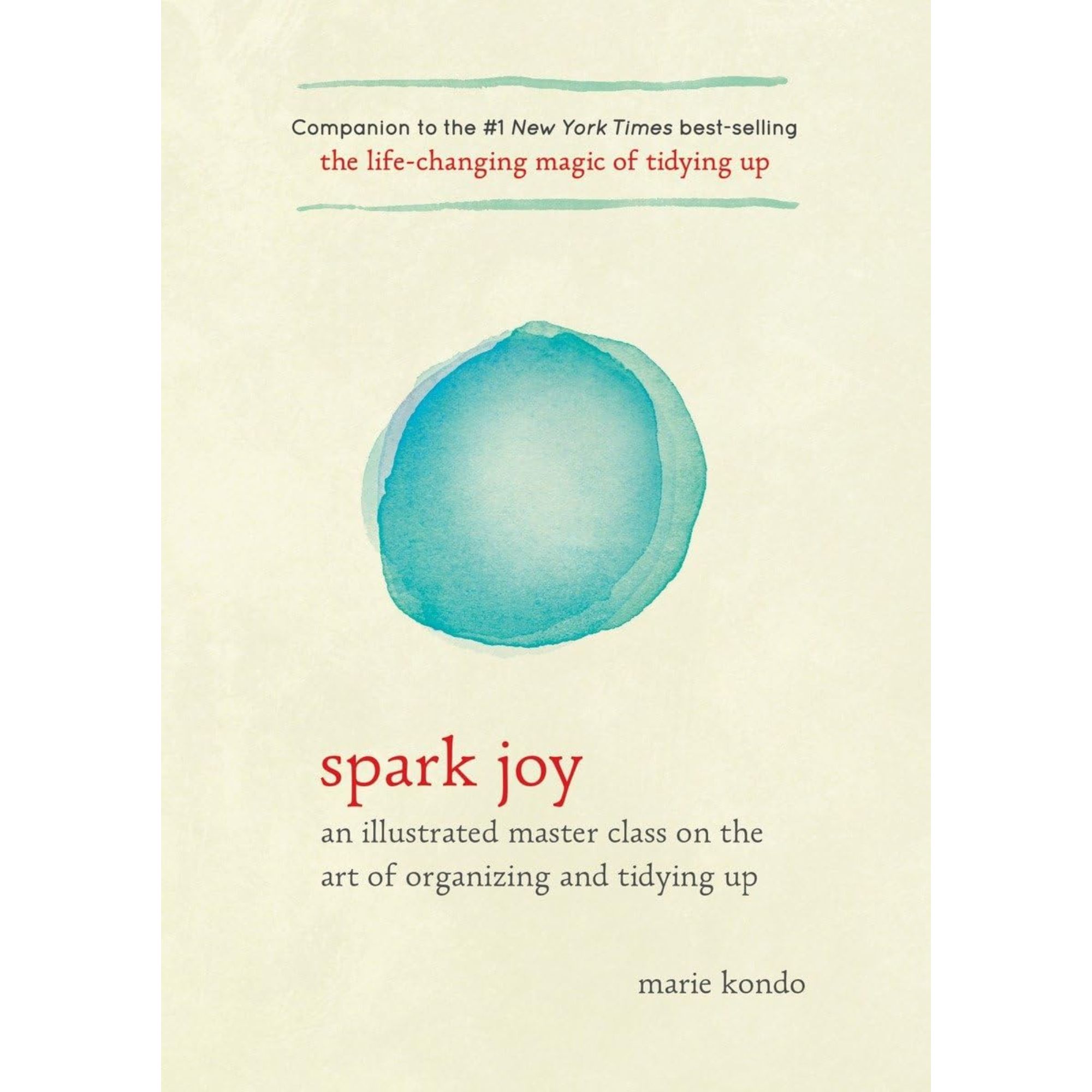
Illustrated
If you’re more of a visual learner, this book has step-by-step folding illustrations for all clothing items, from socks to shirts and everything in between.

Available in nine colors
Goodpick Cube Storage Bins
Using stylish storage baskets is one of the best ways to collect items for decluttering or donation, or to stash items away and create empty space.

If you’re feeling inspired by Marie and her kintsugi, this kit contains everything you need to repair broken crockery.
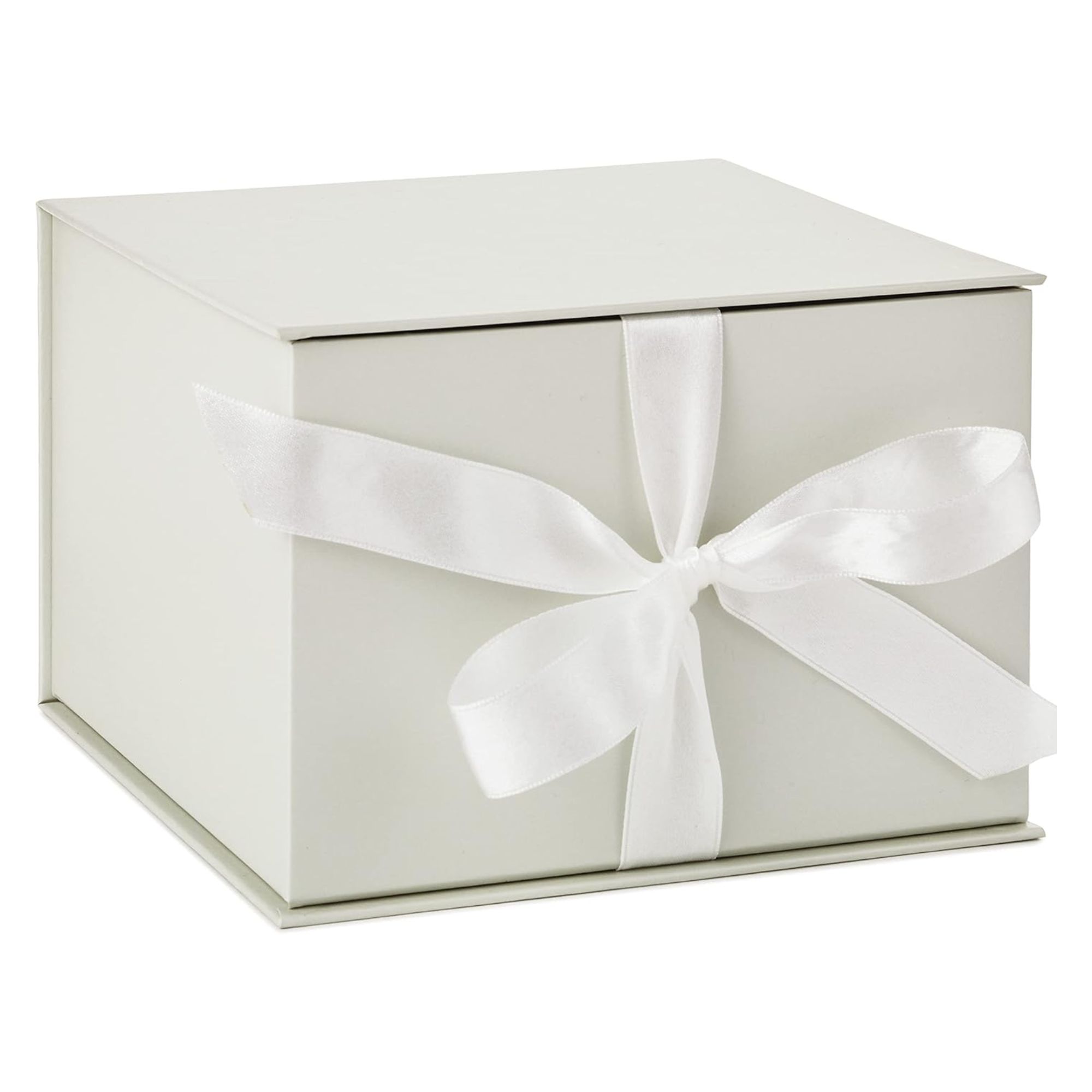
Great for gifting
Giving a loved one a gift in a box like this will guarantee that it’s good enough – and nice enough – to reuse afterward.
‘Tis the season for hosting, and Marie Kondo’s tips for tidying before hosting guarantee a space that sparks joy.

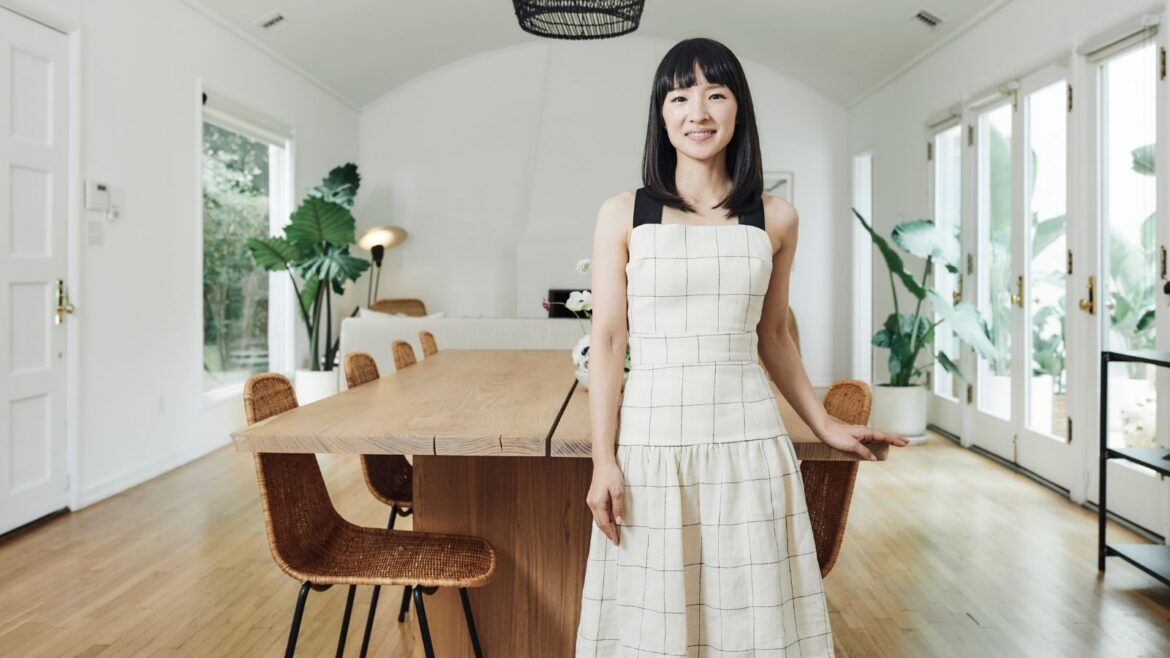
AloJapan.com